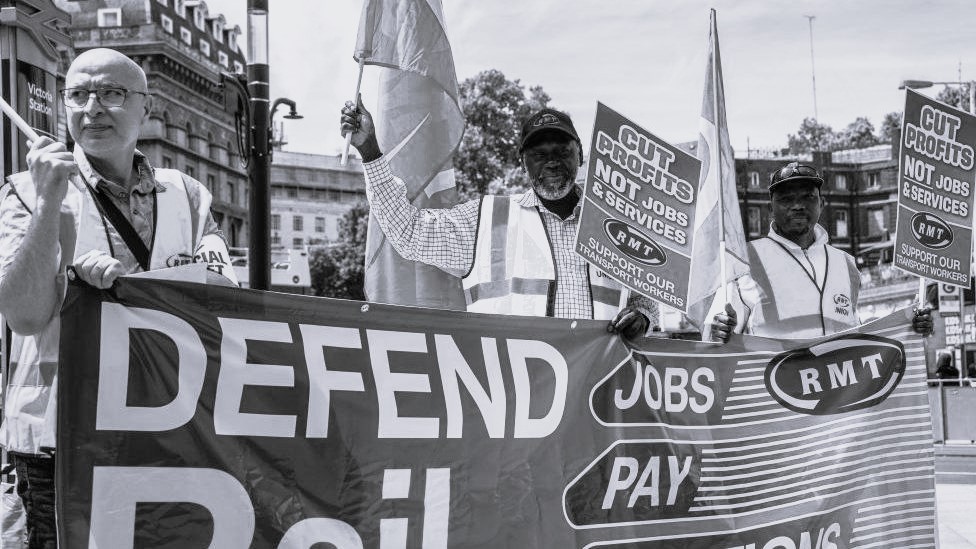Self-Employment, Unions and Workers Rights
Posted on August 4, 2022
I only ever experienced being in a union once. It was at the AWE when it was the Civil Service. I was only 18 so I didn’t really know or care what a union was. All that I knew was that there was to be a strike and my boss, Anne, disapproved. I didn’t like her, so I went on strike, which involved turning up to a meeting for an hour, then having a half day.
Workers Rights
Thereafter, up until I set up my own business, any protection I had in the workplace was via workers rights. I knew a bit about these due to night course at Basingstoke Tech. This meant I understood the concept of disciplinary action, verbal & written warnings and so on. Remarkably, this limited knowledge stood me in good stead when someone with a personal vendetta tried to sack me without any warning way back in 1993.
From then onwards, I realised that as a worker, you do need protection. Without that protection, you could easily be shown the door just because your face doesn’t fit, or someone needs a scapegoat for their own failings. I left the world of PAYE employment in 1997, leaving all those rights behind as I did so.
Self-Employment
Like many people who go self-employed, I set up my own business as I didn’t function well in corporate life. I don’t know why I didn’t really fit in, but brown-nosing beers with the boss, watching your back, and corporate days at the football, was never really my thing. I probably just worked for the wrong companies or maybe I am just a bit ‘on the spectrum’ where I find it hard to fit in.
So, once you are self-employed, your protection is limited. You can’t really set your own ‘workers rights’. Protection comes from engaging an accountant and a solicitor (both who cost you good money). These professionals are used to making sure your paperwork is correct and to work on your behalf in the event of a bad debt or legislation issues. If you become a limited company, any bad debts that result in liquidation of your business should (but not always) mean your personal assets (notably, your house) are protected.
That’s about it, as far as protection goes. The upside is that you can run your life and business as you see fit. You can work as many or as little hours as you like. It depends how much money you want to make and how much you are prepared to risk making it. Many companies ‘go big’ and end up going bust, others stay small and have a decent, if not spectacular lifestyle, with less worries. I am the latter, partly because I am a bit lazy.
Attitude to Strikes
These are all choices we make in life. That’s why I can’t understand it when people who run small businesses turn on the employed workers and their unions when there is a dispute. The attitude of ‘I run my own business and I don’t get to go on strike and get a pay rise’, makes little sense to me. If a worker is getting a poor deal whilst CEO’s rip the wealth out of privatised public services, should the worker not be allowed to kick up a stink?
We are almost trained to believe that union bosses are communist firebrands, selfishly bringing the country to a halt. Our present government and the media that support it, wants us to believe that workers’ rights are a bad thing and union representation is even worse. They want to ban a worker being represented in a dispute. Yet they have little to say about bosses of privatised public services taking millions of taxpayer’s monies in salaries, bonuses, and dividends. All as customer satisfaction and indeed, safety, goes south.
Public Opinion
It will be interesting to see how public opinion sways during an increasing amount of public service disruption. The war of words has already begun. We already know what the next leaders think and the most likely of the two is the darling of The Daily Mail, Liz Truss. Truss doesn’t want unions and she doesn’t don’t workers’ rights. She doesn’t even hide it. The question is whether the people want the workers who keep public services running, to have any rights?
As someone who ultimately went down the route of running my
own little business, those rights don’t apply to me. However, when it comes
down to what side I am on when bosses give themselves massive bonuses whilst
restricting the pay and terms of the people who keep public service running, I
know what side I am on. Why should my corporation tax be spent on bonuses going
to people shredding paperwork workers’ rights and public safety?
Anyone who thinks deregulation is a good thing needs to give their head a good
wobble.

Got something to say?